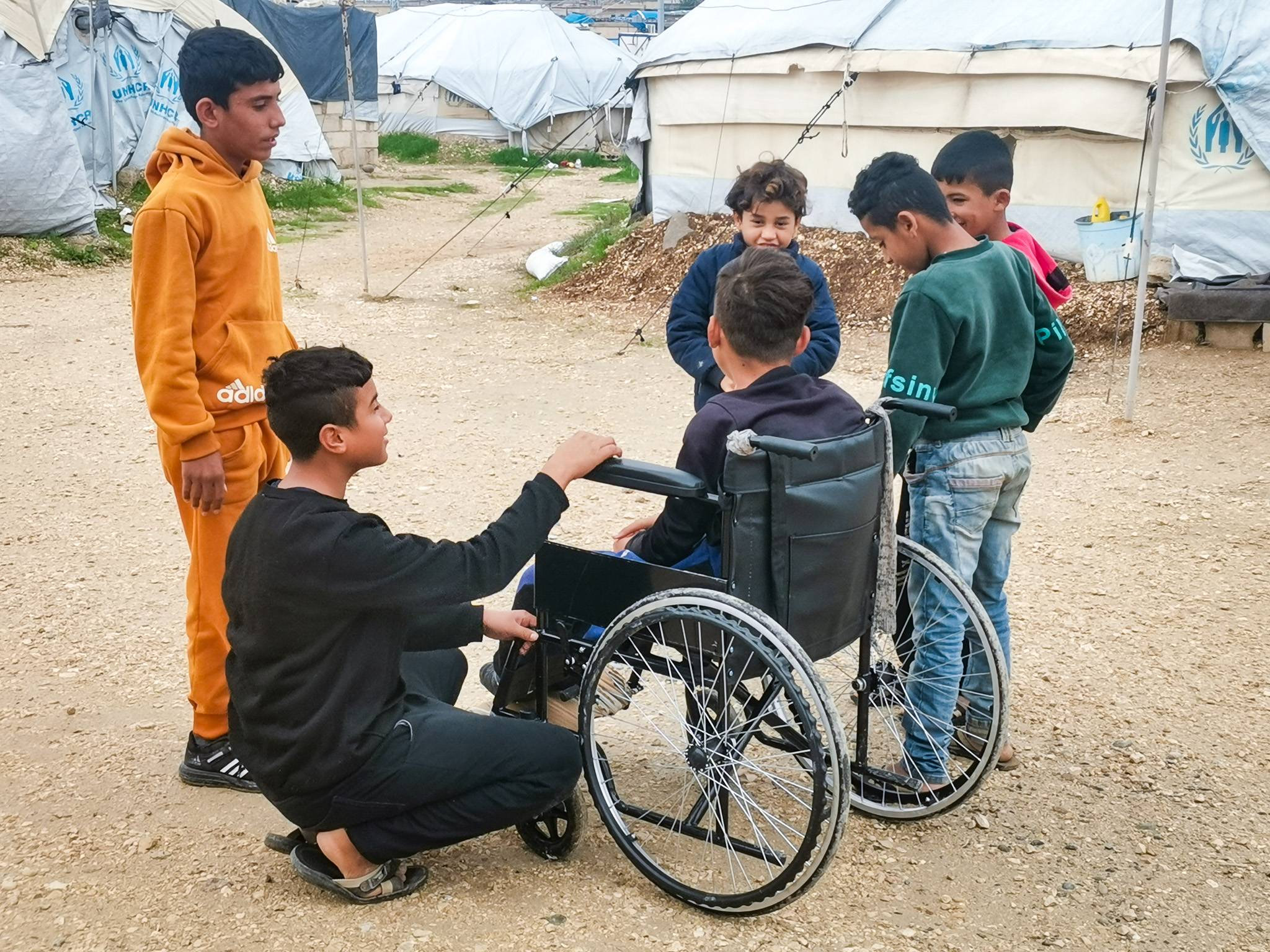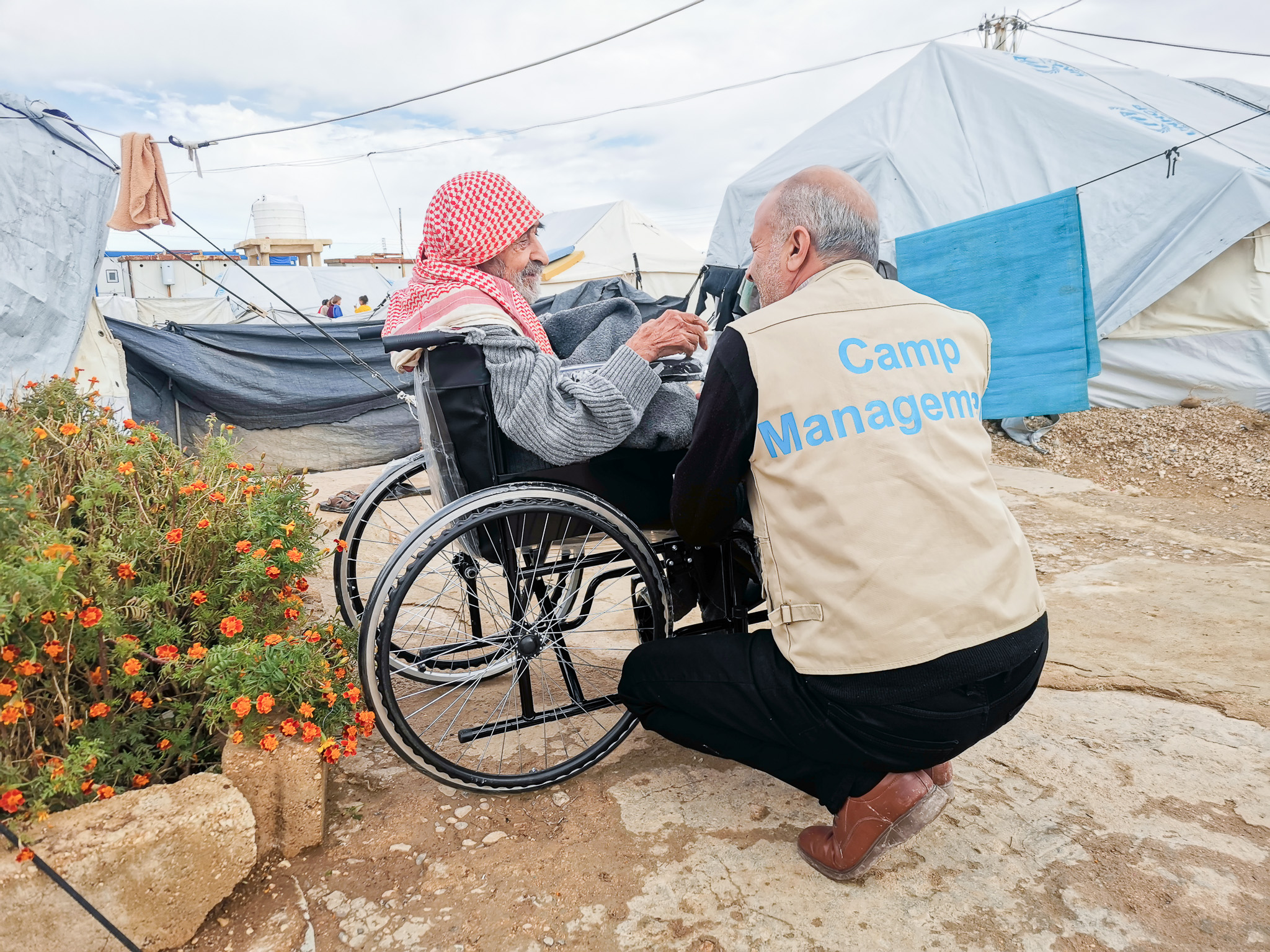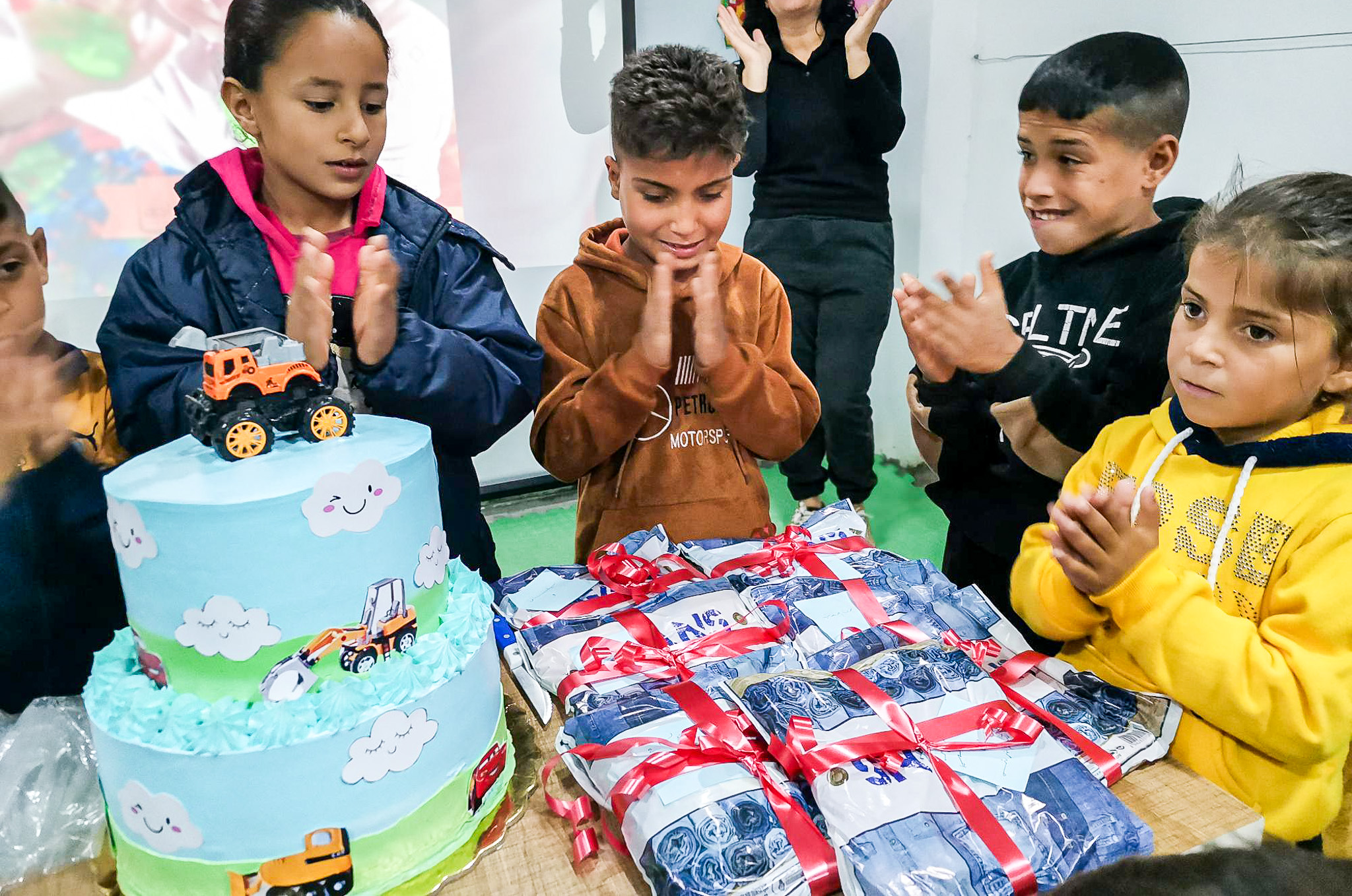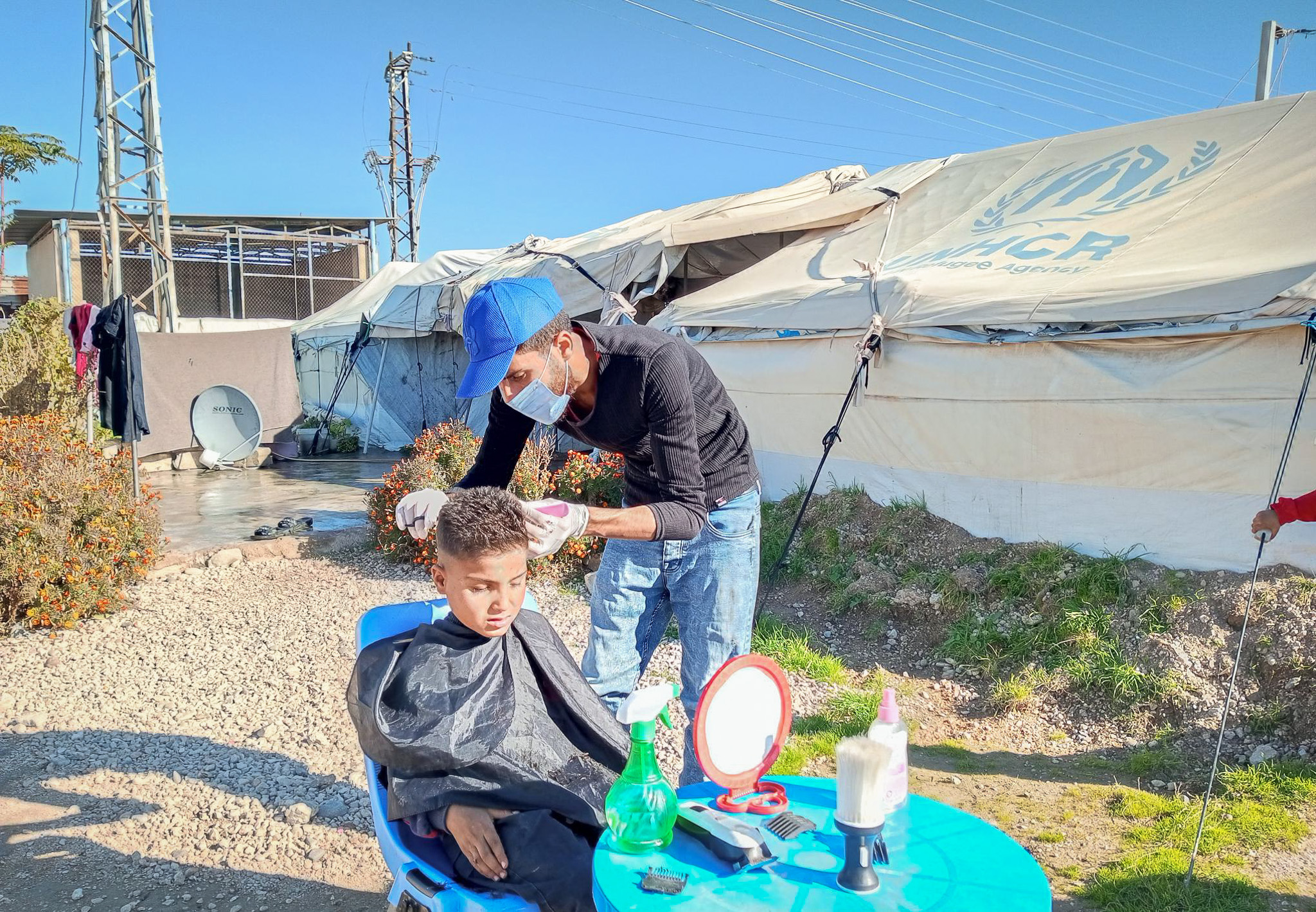People with disabilities face disproportionate challenges in accessing key services and support during and after conflict.[1]
For the Shelter and Food Emergency Response (SAFER) program, we work with host communities and displaced families in northeast Syria, many of which include people with disabilities. Funded by USAID’s Bureau for Humanitarian Assistance, SAFER addresses food insecurity and humanitarian needs in vulnerable populations across the region.

Taha, center, can spend more time playing with his friends because of his new wheelchair that helps him move around more easily. The SAFER program distributes wheelchairs to people with disabilities living in a displacement camp in Syria.
An important aspect of meeting humanitarian needs is protecting the rights and dignity of communities. In 2023, SAFER assisted over 1,105 people with disabilities in displacement camps and collective centers, ensuring that services were tailored to meet each person’s needs and abilities. Activities are designed so people are respected and engaged—no matter their abilities or what challenges they may face.
On International Day of Persons with Disabilities, SAFER organized several activities to support people with disabilities and their caregivers.
Improving Mobility, Restoring Dignity
Our team worked with partners to distribute wheelchairs to 15 camp residents. Moving around the camp can restore a sense of normalcy and independence in daily life. Without mobility devices, many of them had been confined to their tents or relied on the support of family members.

The SAFER team distributed wheelchairs to people with disabilities living in a displacement camp who were unable to move around the camp unassisted.
Salamah, an elderly man at one of the camps, was overjoyed to receive a wheelchair. He said, “I spent long days in the tent without movement. Now, I can sit outside and see the sunlight.”
Taha, a teenager, shared, “With a wheelchair, I can wander, move freely, and go to the playground.” His father added that Taha set off with his friends as soon as he received his wheelchair.
Adla, an elderly woman, said, “I used to feel embarrassed when carried on [my family’s] backs. Now I can spend a long time with my neighbors outside the tent after getting a wheelchair.”
A Special Day for Children with Disabilities
SAFER hosted a gathering for children with disabilities to make them feel special while giving them an opportunity to just be kids.

Children living in a Syrian displacement camp attended a party organized just for them by our SAFER team, where they received gifts and played games adapted to their disabilities.
Laughter echoed through the air as the boys and girls played specially designed games and sparked new friendships. Each child received carefully selected gifts tailored to their interests and needs.
Jaida, a teenage girl, said, “Meeting people in this camp made it feel like home. I never want to leave this hall.”
A young girl, Baraa, shared, “I used to spend dull days in the tent. This time, I played a lot and had so much fun.”
Haircuts for Confidence
The SAFER team organized haircuts for people of all ages with disabilities. This activity promoted inclusivity and inspired self-confidence. Each person received a private visit at their tent from barbers in the community who volunteered to help.

A group of barbers volunteered to give haircuts to children with disabilities living in displacement in northeast Syria.
The goal was to show participants that they could enjoy personal care services without fear. Their communities are inclusive and willing to make accommodations to make them feel comfortable.
“With two children in school, meeting all their needs is a challenge,” said Bilal, a father whose children received haircuts. “Now, my children not only look cared for, but are also learning about the importance of personal hygiene.”
Caregiver Psychosocial Support Session
Caregivers also deserve recognition and support for their dedication and hard work. We organized a support group session for people who care for their family members and friends with disabilities while also facing the hardships of displacement.
This session led to the creation of a community support network. By staying connected, the caregivers can lean on one another and share their experiences. This community network complements our team’s work with caregivers in which teams regularly check in to ensure that family members receive the support they need to be able to continue helping others.
[1] https://www.unmas.org/en/persons-with-disabilities-armed-conflict



